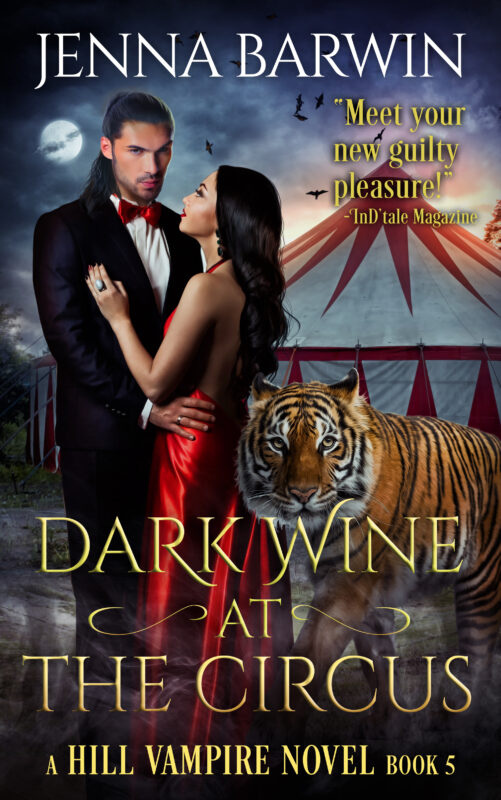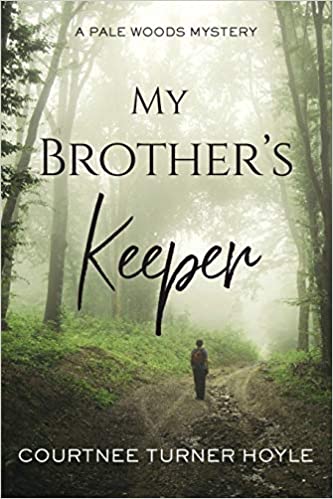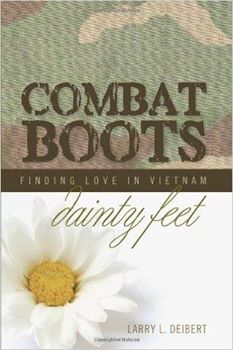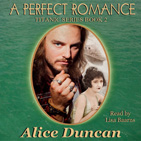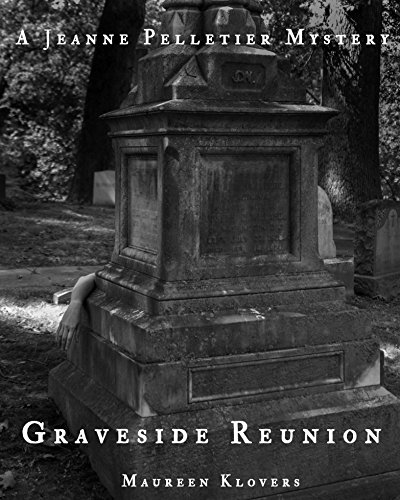Humble Pie by Veronica Jorge
June 22, 2021 by Veronica Jorge in category Write From the Heart by Veronica Jorge tagged as critique groups, Eiditing, Veronica Jorge
I’ve always hated revisions and editing. It seemed sacrilegious to tamper with someone’s magnum opus. After all, they’ve poured out their whole heart. How dare I touch it? And what would be the fate of my own work in the hands of others? (I tremble, heart pounding). I realized it’s time I eat a slice, a very LARGE slice, of humble pie and drink a cup of trust.
That is how I discovered that in the midst of a faithful critique group, and a skilled editor, magic happens. My eyes open to see the pitfalls I’ve missed. My ears lean into the heart-beat of my thoughts. And with the group’s enthusiastic guidance and encouragement, (that includes you, Marianne H. Donley), I find myself digging deeper into myself and finding treasures I never expected. The result? A work far better than the one I thought was the best.
If I may borrow a line from our own Slice Of Orange, ‘the extra squeeze’ they put me through brought out the best flavor.
Humble pie never tasted so good.
Veronica Jorge
See you next time on July 22nd!
2 0 Read moreDear Extra Squeeze Team, How Do I Keep My Narrative Voice Consistent?
July 31, 2020 by The Extra Squeeze in category The Extra Squeeze by The Extra Squeeze Team tagged as critique groups, Narattive voice, POV, Revising, The Extra Squeeze Team
Dear Extra Squeeze Team,
I have three MCs in my historical fiction novel; each one in a different country. A critique pointed out that the voice kept changing. How do I keep the voice constant while maintaining the three different cultures?

Rebecca Forster
USA Today Bestselling author of 35 books, including the Witness series and the new Finn O’Brien series.
This sounds like an exciting and intricate project. It also sounds like you need to stop and assess your critique group’s input. Having not seen the work it’s hard to make a judgment regarding your question, but I think the changing voices would be necessary for a project of this scope. So ask yourself if, in this instance, is your author’s instinct appropriate or your critique group’s caution?
I wrote a book called Before Her Eyes that had first person and third person parallel stories. The voices had to be different and I wrote them as such. Readers had no problem with this.
What I do question, however, is the suggestion that you have three main characters. I will accept they are the MC’s of their separate sections of the book. However (again an assumption) they will all come together at some point. There will have to be a conclusion to this book and that means one character will have the star turn.
I would be curious to know if you really have three MCs or one MC and some very, very strong supporting characters. I will refer back to Before Her Eyes. While each track had a main character the climax of the book showcased one. His journey overrode hers. Good luck.

Jenny Jensen
Developmental editor who has worked for twenty plus years with new and established authors of both fiction and non-fiction, traditional and indie.
Whose voice? I’m going to assume you mean the narrative voice—1st PPOV or 3rd PPOV. It would be critical for the voices of the three separate MCs to be different from one another but consistent within each voice. I’m not so sure it would be so for an overall narrative voice unless it is 1st PPOV. That makes the narrator a character as well.
If we are talking 3rd person narrator be clear in your mind about the intent and purpose of the narrator—is it the omniscient 3rd person? Then you have the advantage of a voice that knows everything from the thoughts of a character to where in time all the characters are. Think of it as your writerly inner voice and stick with that for the omniscient narration.
If you are using a 1st person narrator then it is a character with it’s own strengths and weaknesses and agenda. As with any character the author needs to truly know who that character is. Tapping into that understanding will keep the narrative voice consistent through out.

Ever wonder what industry professionals think about the issues that can really impact our careers? Each month The Extra Squeeze features a fresh topic related to books and publishing.
Amazon mover and shaker Rebecca Forster and her handpicked team of book professionals offer frank responses from the POV of each of their specialties — Writing, Editing, PR/Biz Development, and Cover Design.
Critique Groups or Beta Readers?
March 3, 2019 by Janet Elizabeth Lynn and Will Zeilinger in category Partners in Crime by Janet Elizabeth Lynn & Will Zeilinger tagged as Beta Readers, critique groups, editing, Proofreading
What’s the difference and why do we need them anyway?
by
Will Zeilinger
Janet and I co-write the Skylar Drake Mystery series and we’ve had people say to us, “I guess you proofread each other’s work.”
Both of us are intimately involved in the writing and initial editing, as such, we can get too close to it and sometimes miss big issues. That’s why we would never submit something for publication without the help of critique groups and/or beta readers to assist us.
What exactly, are we talking about? Maybe this will help.

Beta Readers are individuals who evaluate your manuscript by reading it through and telling you about flaws or holes in your story. Beta has come to mean a sort of testing phase and that is what a beta reader does. You have them read your work as a way of testing it for readability, and overall structure.
A Critique Group is made up of several people (usually writers, but sometimes includes readers) who meet together. You as an author, provide a short story or maybe a chapter from a novel for the group to read and critique.
Let me stop here—The very word ‘critique’ is based on the word criticism, and in our culture that word has taken on a negative connotation, since to criticize someone’s writing usually means to tear it apart. However, the dictionary definition of the word ‘critic’ indicates it is “someone who passes judgement on something, usually in reference to art and literature.”
That is a neutral statement…judgement can be either positive or negative, or a combination of both. So, it’s not, necessarily a bad thing.
This may all sound scary, especially to a beginning author. They’re taking your baby away from you and who knows what they will return in its place? Will your prose become something unrecognizable? After all the hours, days, and nights of sweat and deprivation…will they drop a piece of crap in your lap?

Here’s the truth: Having another set of eyes and an impartial opinion of your work-in-progress is an essential step if you are planning to self-publish, but it can also help you in the quest to secure an agent or publisher if your plan is to go the traditional route with your work.
“But it’s gonna hurt!” you say. Don’t look at it that was. This is where you have the power to accept or reject any suggestions or critiques of your work.
As a career graphic designer, I remember vividly, the first critiques in my college classes. We all posted our concepts on the wall of the classroom. The professor would walk back and forth, making “hmmph” and “umm” noises before turning and asking the rest of us in class what we thought of each piece. There were, of course, a variety of reactions to them.
As students, we’d take each into consideration. I didn’t always accept their suggestions, but I needed to hear and see it because I’d been too close to my work to be objective.
One of the things my professor said that I’ve carried over into my writing was when he would hold his hand over a portion of the drawing and ask, “Does this still work without this part?”
I found that eliminating nonessential pieces has helped streamline my work and make it read easier.
I needed to learn to accept constructive, positive critiques in either my designs or my writing, and discount those that were not pertinent or objective.
Letting others check your work-in-progress is a great way to improve your writing and make friends too. Your choice: Beta Readers or Critique groups or both. Find the right one for you.
1 0 Read moreHelping Santa by @jannryan
December 2, 2017 by marianne h donley in category Jann says . . . tagged as critique groups, interviews, Jann Ryan
Jann says she’s off today helping Santa. But don’t worry she’ll be back on December 4th with a special interview featuring the members of the Writing Something Romantic critique group.
Mark your calendars because the group has something fun to share.

Jann Ryan grew up with the smell of orange blossoms in Orange County in sunny Southern California, where she has lived her entire life and dreamed up stories since she was a girl. Never an avid reader, she was in her thirties when she picked up her first romance quite by accident. She fell in love with happily ever after and has been reading romances ever since.
Wanting to put pen to paper, Jann joined of Romance Writers of America®. Currently, she is working on a romantic suspense series set in Stellar Bay, a fictitious town along the California central coast to fulfill her publishing dream.
0 0 Read moreAffiliate Links
A Slice of Orange is an affiliate with some of the booksellers listed on this website, including Barnes & Nobel, Books A Million, iBooks, Kobo, and Smashwords. This means A Slice of Orange may earn a small advertising fee from sales made through the links used on this website. There are reminders of these affiliate links on the pages for individual books.
Search A Slice of Orange
Find a Column
Archives
Featured Books
DARK WINE AT THE CIRCUS
Everyone has a secret fantasy—even a rich and powerful vampire…
More info →A PERFECT ROMANCE
Side by side on the fateful night of the Titanic disaster . . .
More info →GRAVESIDE REUNION
A chance encounter with a wealthy congressman leads to an unusual proposition…
More info →Newsletter
Contributing Authors
Search A Slice of Orange
Find a Column
Archives
Authors in the Bookstore
- A. E. Decker
- A. J. Scudiere
- A.J. Sidransky
- Abby Collette
- Alanna Lucus
- Albert Marrin
- Alice Duncan
- Alina K. Field
- Alison Green Myers
- Andi Lawrencovna
- Andrew C Raiford
- Angela Pryce
- Aviva Vaughn
- Barbara Ankrum
- Bethlehem Writers Group, LLC
- Carol L. Wright
- Celeste Barclay
- Christina Alexandra
- Christopher D. Ochs
- Claire Davon
- Claire Naden
- Courtnee Turner Hoyle
- Courtney Annicchiarico
- D. Lieber
- Daniel V. Meier Jr.
- Debra Dixon
- Debra H. Goldstein
- Debra Holland
- Dee Ann Palmer
- Denise M. Colby
- Diane Benefiel
- Diane Sismour
- Dianna Sinovic
- DT Krippene
- E.B. Dawson
- Emilie Dallaire
- Emily Brightwell
- Emily PW Murphy
- Fae Rowen
- Faith L. Justice
- Frances Amati
- Geralyn Corcillo
- Glynnis Campbell
- Greg Jolley
- H. O. Charles
- Jaclyn Roché
- Jacqueline Diamond
- Janet Lynn and Will Zeilinger
- Jeff Baird
- Jenna Barwin
- Jenne Kern
- Jennifer D. Bokal
- Jennifer Lyon
- Jerome W. McFadden
- Jill Piscitello
- Jina Bacarr
- Jo A. Hiestand
- Jodi Bogert
- Jolina Petersheim
- Jonathan Maberry
- Joy Allyson
- Judy Duarte
- Justin Murphy
- Justine Davis
- Kat Martin
- Kidd Wadsworth
- Kitty Bucholtz
- Kristy Tate
- Larry Deibert
- Larry Hamilton
- Laura Drake
- Laurie Stevens
- Leslie Knowles
- Li-Ying Lundquist
- Linda Carroll-Bradd
- Linda Lappin
- Linda McLaughlin
- Linda O. Johnston
- Lisa Preston
- Lolo Paige
- Loran Holt
- Lyssa Kay Adams
- Madeline Ash
- Margarita Engle
- Marguerite Quantaine
- Marianne H. Donley
- Mary Castillo
- Maureen Klovers
- Megan Haskell
- Melanie Waterbury
- Melissa Chambers
- Melodie Winawer
- Meriam Wilhelm
- Mikel J. Wilson
- Mindy Neff
- Monica McCabe
- Nancy Brashear
- Neetu Malik
- Nikki Prince
- Once Upon Anthologies
- Paula Gail Benson
- Penny Reid
- Peter Barbour
- Priscilla Oliveras
- R. H. Kohno
- Rachel Hailey
- Ralph Hieb
- Ramcy Diek
- Ransom Stephens
- Rebecca Forster
- Renae Wrich
- Roxy Matthews
- Ryder Hunte Clancy
- Sally Paradysz
- Simone de Muñoz
- Sophie Barnes
- Susan Squires
- T. D. Fox
- Tara C. Allred
- Tara Lain
- Tari Lynn Jewett
- Terri Osburn
- Tracy Reed
- Vera Jane Cook
- Vicki Crum
- Writing Something Romantic
Affiliate Links
A Slice of Orange is an affiliate with some of the booksellers listed on this website, including Barnes & Nobel, Books A Million, iBooks, Kobo, and Smashwords. This means A Slice of Orange may earn a small advertising fee from sales made through the links used on this website. There are reminders of these affiliate links on the pages for individual books.

